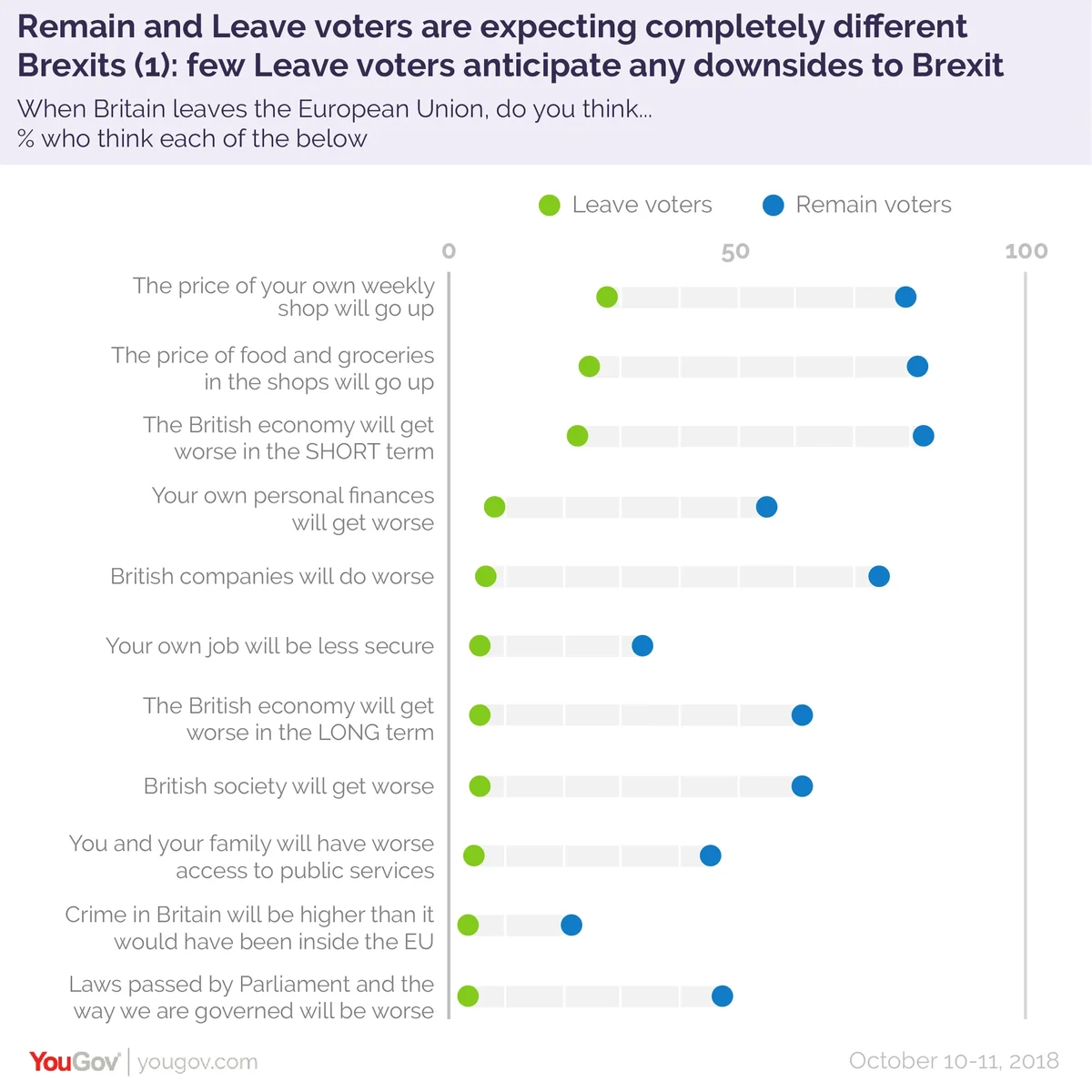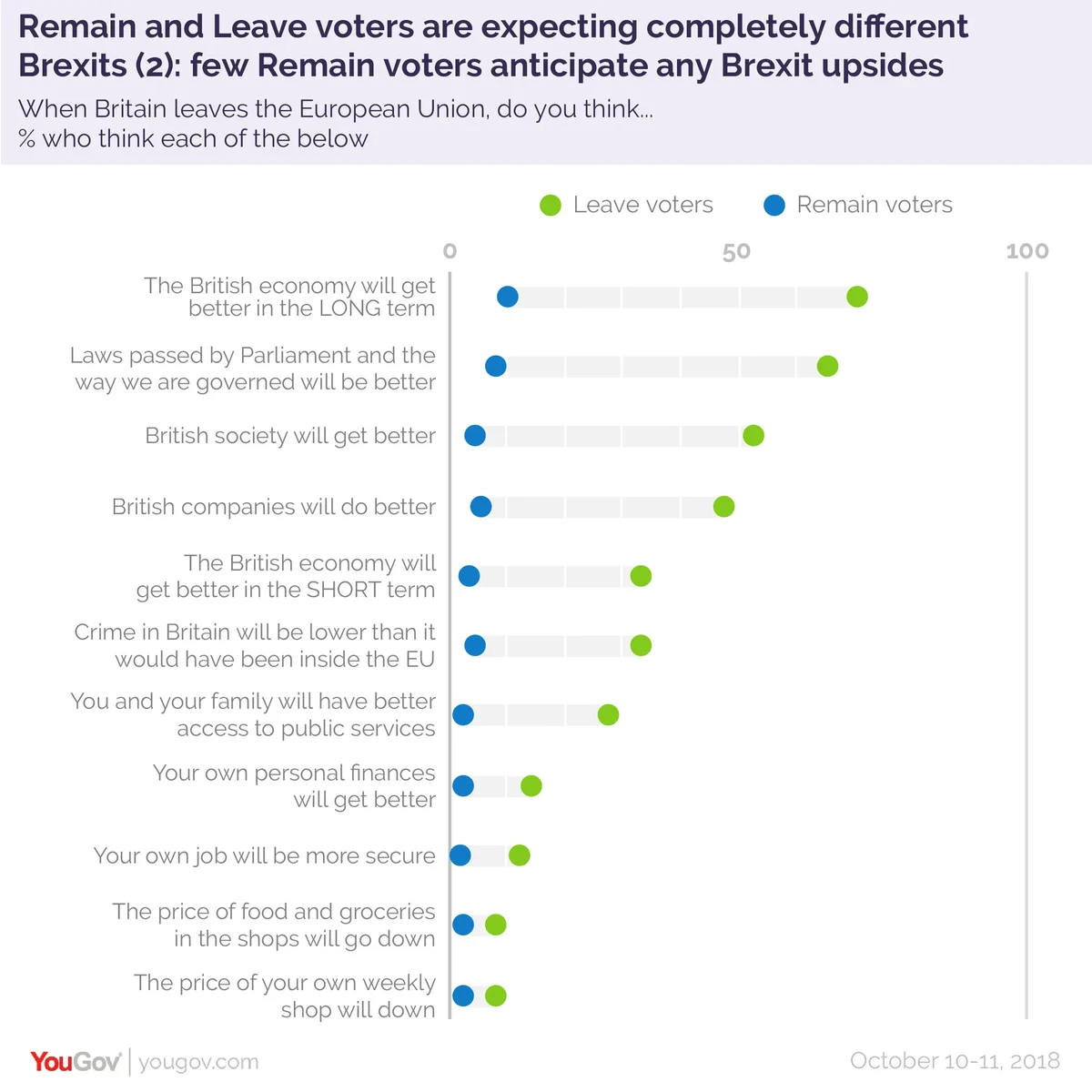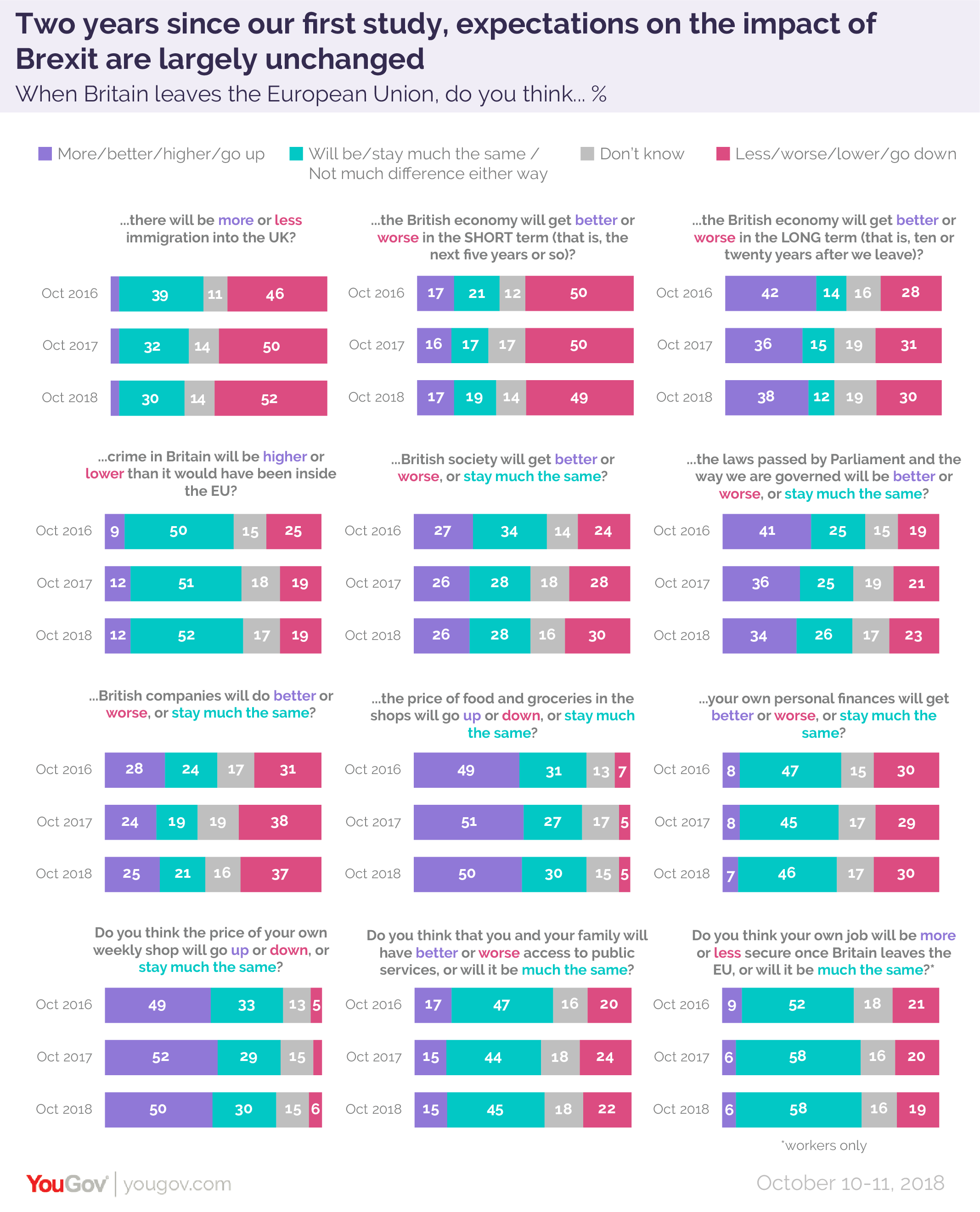Few Remain voters expect positive impacts, while most Leave voters don’t expect any negative consequences
Back in October 2016, just four months after Britain voted to leave the EU, YouGov asked the nation what they thought the impact of Brexit would be on various things like the economy, public services and job security.
Two years later the most recent edition of this survey reveals that – despite the best efforts of both sides of the debate to paint a picture of either a sunny or stormy Brexit – expectations remain pretty much the same.
The single biggest shift in attitudes is over the impact of immigration. In our 2016 survey, 39% of Britons believed that immigration into the UK would remain at much the same level – this has since fallen nine points to 30% (with a concurrent increase of six points in the amount of people who think immigration levels will decrease, to 52%).
This is hardly a huge shift, and on many of the other possible effects of Brexit opinion has been essentially static.
The most commonly held beliefs uncovered by the survey are that…
- 58% of workers believe their job security will remain much the same;
- 52% of all Britons believe there will be less immigration;
- 52% believe crime will remain at the same sort of level;
- 50% believe that the price of food and groceries will go up, and an identical proportion believe that the price of their own weekly shop will go up; and
- 49% believe that the economy will get worse in the short term (although this falls to 30% in the long term).
Remain and Leave voters are expecting entirely different Brexits
The survey does highlight quite how different Remain and Leave voters’ expectations are, with those who wanted to stay in the EU substantially more likely to expect negative effects than their Brexit-backing brethren.
In fact, of the eleven questions where a definite positive/negative answer option was provided, 79% of Remain voters don’t expect a single positive outcome as a result of Brexit. Likewise, 57% of Leave voters don’t expect a single negative outcome as a result of Brexit.
In terms of the potential pitfalls of leaving the EU, the most plausible-sounding to Leave voters is that the price of their weekly shop will go up. However, this still only amounts to just over a quarter (27%) of Leave voters who think this, half the 54% who think it will stay much the same. (By contrast, fully 79% of Remain voters expect to see their weekly shop cost more after Brexit).

For Remain voters the most anticipated positive impact of Brexit will be economic improvement in the long term, but only 10% of people think this will occur. This is also the positive Brexit outcome that the most Leave voters expect, at the much higher rate of 70%.

Overall there are only two Brexit outcomes that were the most commonly selected answer option for both Remain and Leave voters: that crime will likely stay at the same level it would have done while in the EU (51% of Leave voters and 59% of Remain voters); and that their job security will be much the same as it was before Brexit (71% of Leave-voting workers, 52% of Remain-voting workers).
Photo: Getty

 Click to enlarge
Click to enlarge








